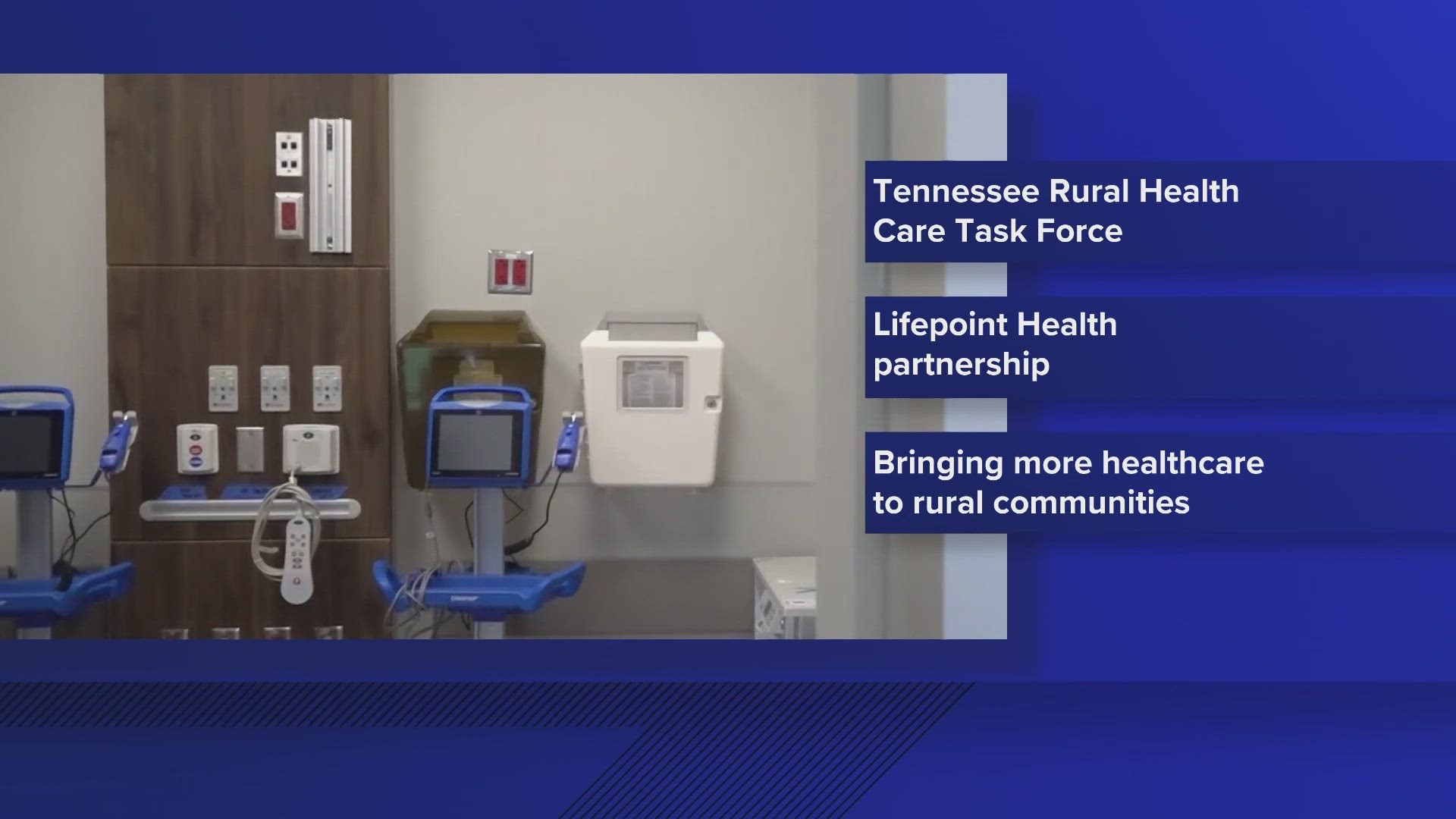NASHVILLE, Tenn. — After around a year of meetings, a task force formed to improve healthcare in rural communities released its recommendations on Friday.
The recommendations focused on three specific areas: access to care, workforce development and social drivers of health.
It is named the Rural Health Care Task Force and is comprised of 34 people representing Governor Bill Lee's administration, the Tennessee General Assembly and rural healthcare leaders. People joined the task force from the Tennessee Department of Health, the Tennessee Department of Economic and Community Development and TennCare among other groups.
To improve communities' access to healthcare they recommended building a "center of excellence" for rural communities and providers. They proposed building the facility through a public-private partnership and proposed spending around $5 million on it over five years.
They also proposed creating "planning and implementation" grants meant to supplement communities' healthcare systems and said the state should budget $7 million for them.
To expand health insurance coverage, they said the legislature should create policies that "assess opportunities to address gaps in insurance status" and "identify existing coverage sources and educate rural Tennesseeans about available options." They also recommended spending $66,900 on a rural telemedicine program, expanding telemedicine capabilities in rural communities.
They suggested the state should spend $39,423,650 over five years to expand rural health and behavioral health care apprenticeship programs, enhancing existing ones while also finding chances to build new "apprenticeship-like" programs.
They also said the state should spend $22,491,250 over five years to expand and develop rural health care preceptorship or rotation programs, rural training tracks, rural residency programs and continuing education courses.
They also suggested expanding an existing rural loan repayment program, which gives providers an incentive to practice in rural areas by paying back some of their student loans over time.
They made two suggestions to change the social drivers of rural health. First, they recommended spending $33 million over five years to support county health councils. These councils usually work to improve food security, provide transportation, and prevent substance abuse. They suggested developing a grant program to support these groups and implement support for them through private partners.
The task force also recommended spending $9.6 million over three years on a "Closed-Loop Referral System." The system is meant to coordinate access to necessary support, giving communities tailored resources such as small grants to support non-medical services like training, office workflow, system roll-outs, community linkages or base technology improvements.

